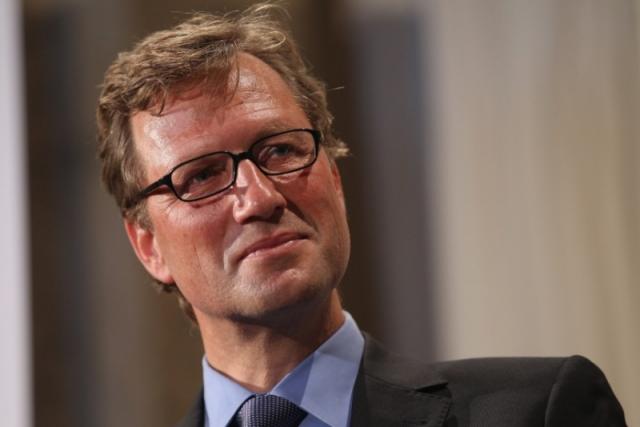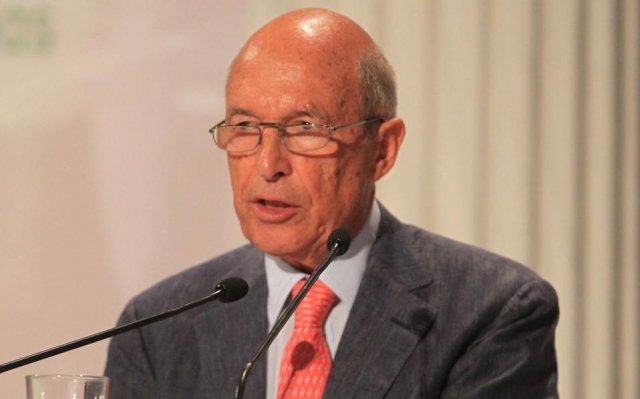Anastasia Balezdrova
The breakneck development of the internet, which is no longer so new, certainly made the world smaller. But although more people worldwide have Internet access, recent studies show that it is in the worst crisis since the beginning of its existence. In addition, according to experts, this has consequences for democracy and also for the perceptions and behaviour of consumers.
The topic of new media’s influence was discussed at the “Athens Forum 2014: Democracy under Pressure” conference. According to Nicklas Lundblad, director of public relations and relations with government at Google for Europe, "the internet provided three things to users: it gave a voice to more people, new ways of organizing and new ways of learning." He pointed out that its initial rise was associated with people's hopes and its current downturn is caused by the fears it generates.
"Technology is evolving very quickly, while institutions react too slowly. Some people may feel threatened, but ultimately it depends on us, whether we will realize the world of our hopes or the world of our fears. We must not forget that technology is a product of the way we use it", said Lundblad and added that to overcome feelings of fear change is needed in the way people are trained, so they can use the internet properly.
 He acknowledged that globally it is necessary to establish institutions that regulate the development of technology. At the same time he said that Europe was lagging behind in terms of opportunities for economic growth in technology as compared to the United States for two main reasons - differences in the legislation of different European countries and the delay in the application of innovative technologies, which adds costs for technology companies, so ultimately they prefer to settle across the Atlantic.
He acknowledged that globally it is necessary to establish institutions that regulate the development of technology. At the same time he said that Europe was lagging behind in terms of opportunities for economic growth in technology as compared to the United States for two main reasons - differences in the legislation of different European countries and the delay in the application of innovative technologies, which adds costs for technology companies, so ultimately they prefer to settle across the Atlantic.
According to Lundblad a decline in the Internet is not inevitable and the confidence of consumers will increase again.
In his talk Matthias Müller von Blumenkrom, editor of the online edition of the German daily Frankfurter Algemeine Zeitung, said that the Internet was suffering its worst crisis since the beginning of its existence. He focused on the fact that dissemination of information was not free, indicating three examples. One of them is the restriction of free access for users in countries such as China. The second: the way in which governments monitor and control the Internet, as shown by Edward Snowden. "The third is Mark Zukerberg and his platform Facebook. According to the latest studies, it contributes to populism among consumers. This automatically raises the question of if Facebook is in favour of democracy or just confirms prejudices".
 The journalist added that the confidence in the new media was very low. "Often we do not know the source of information and in many cases it turns out that things are not as presented. Such is the story of a blogger from Damascus who published texts and pictures that even mainstream media relied on, because they believed that it was information from an original source. Later it turned out that the author was a Scottish woman from Edinburgh living in the USA".
The journalist added that the confidence in the new media was very low. "Often we do not know the source of information and in many cases it turns out that things are not as presented. Such is the story of a blogger from Damascus who published texts and pictures that even mainstream media relied on, because they believed that it was information from an original source. Later it turned out that the author was a Scottish woman from Edinburgh living in the USA".
According to Mueller dissemination of false or inaccurate facts has an enormous impact on society. "The crisis in Ukraine is a very good example of this. In the electronic media we see pictures of tanks moving in an abandoned region and it is not clear where exactly it is. They are described as Russian tanks entering the territory of Ukraine, but nobody can be sure if this is the truth. All this creates enormous tension in Germany and a hatred that amazes even us as journalists".
Mueller said that the free Internet was in danger and stressed the need to regulate its function, so that it is protected from interventions such as judgments of the European Court, under which Internet companies can be forced to remove any invalid information or information adversely affecting the reputation of EU citizens.
In another panel at the same conference, politicians and diplomats discussed if and how the economic crisis is undermining democracy. In the words of former Greek Prime Minister Costas Simitis crisis is the result of Europe’s unwillingness to reject the policy of budget cuts and create conditions for economic development that will improve the lives of citizens. He stressed that given the existing inequalities between countries from the North and the South, it cannot be achieved and suggested the introduction of a uniform tax policy. According to Simitis this would make all European countries equally attractive to investors and help solve the problem of unemployment by creating new jobs.
 He also noted that one of the most serious challenges to democracy in Greece was populism and added that European citizens were very distant from the centre, where solutions are made determining the direction of the European economy. Simitis said that the decisions of a new European Parliament, which will include representatives elected in member states of the Eurozone, would be more acceptable to European citizens.
He also noted that one of the most serious challenges to democracy in Greece was populism and added that European citizens were very distant from the centre, where solutions are made determining the direction of the European economy. Simitis said that the decisions of a new European Parliament, which will include representatives elected in member states of the Eurozone, would be more acceptable to European citizens.